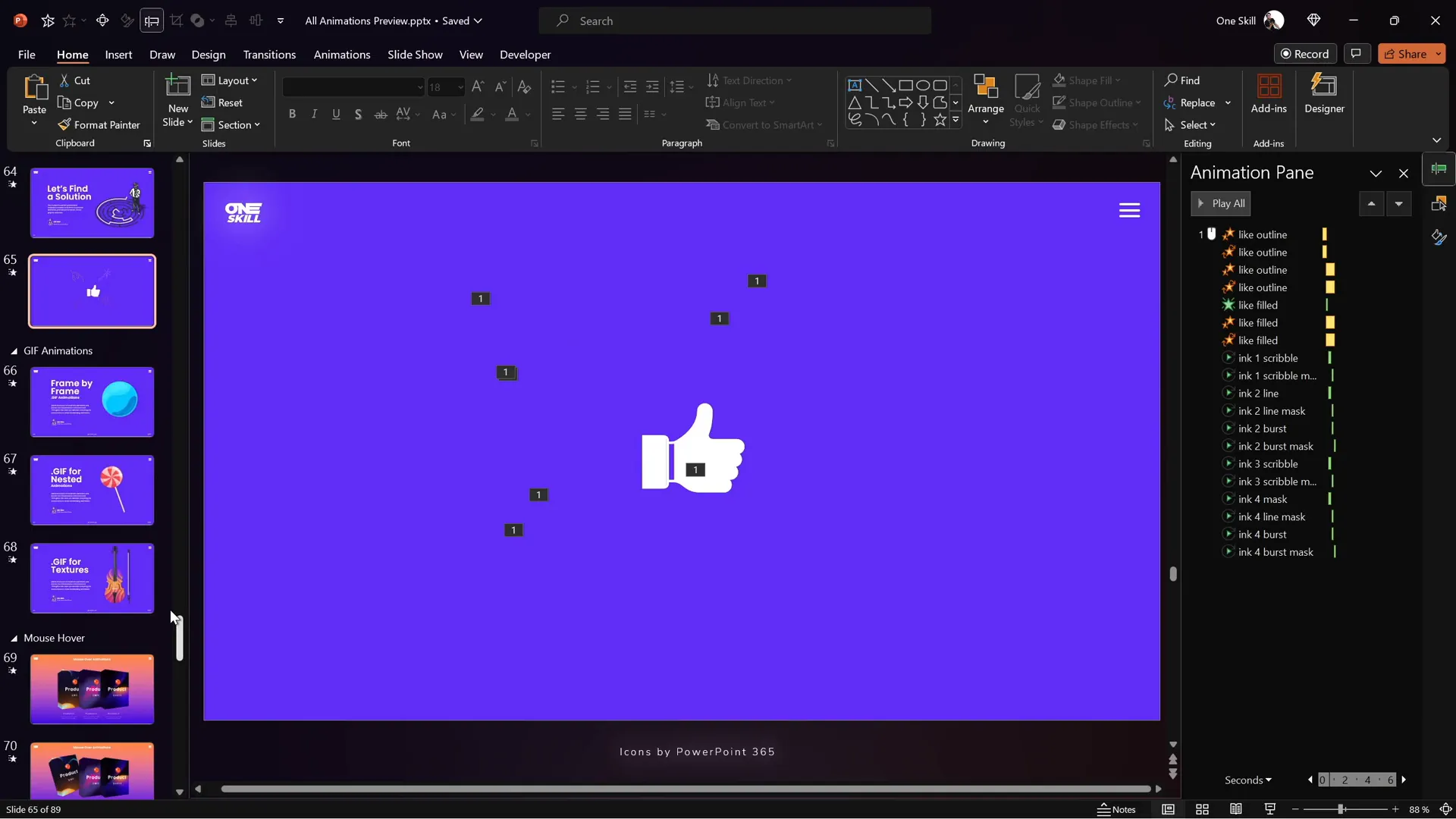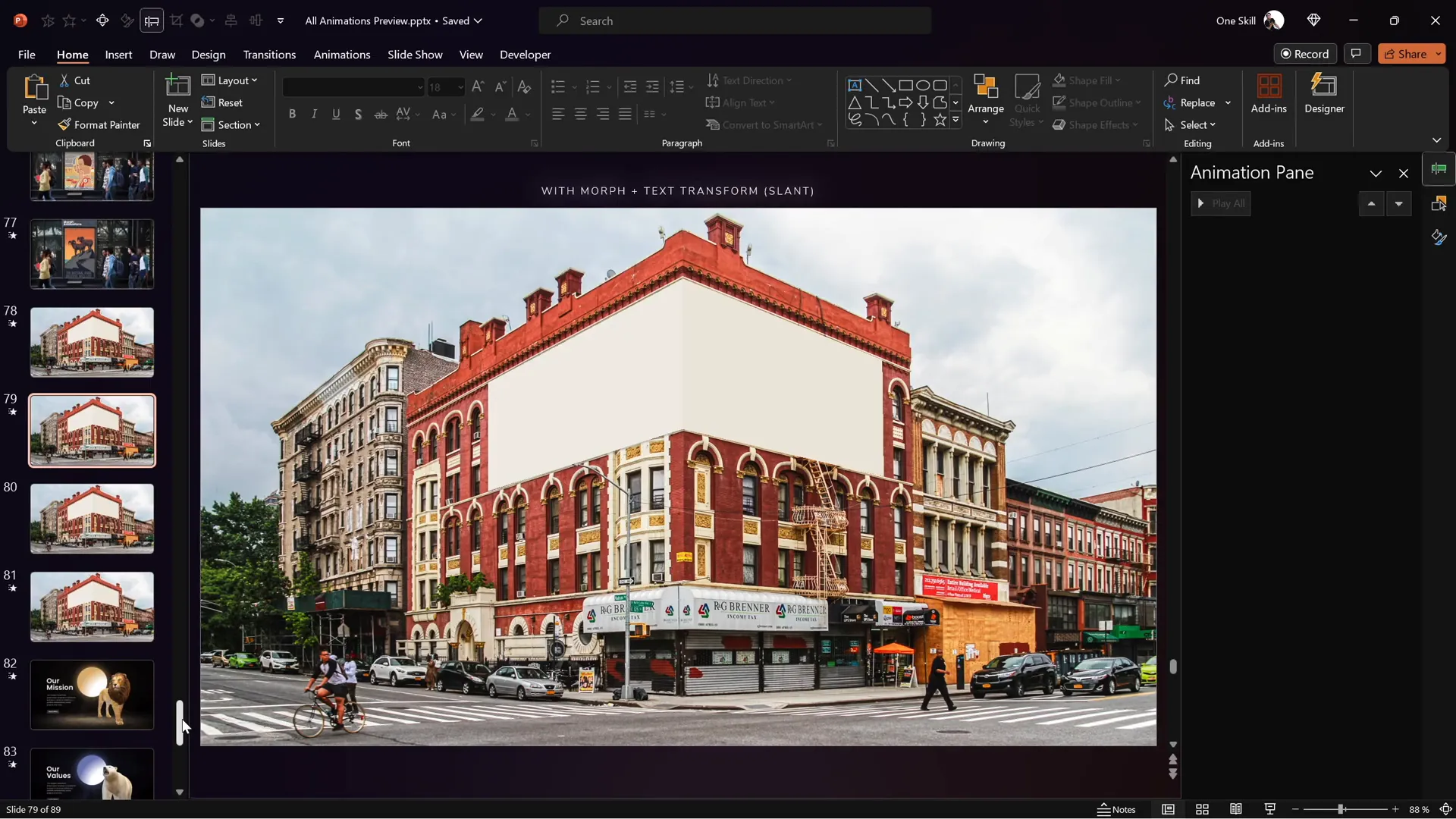
If you want to elevate your presentations and captivate your audience, mastering PowerPoint animations is an essential skill to have. Whether you’re a beginner or an advanced user, learning how to create smooth, engaging, and professional animations can transform your slides from ordinary to extraordinary. This comprehensive guide will walk you through everything you need to know to become a PowerPoint animation pro, starting with the fundamentals and progressing to advanced techniques that will wow your viewers every time.
PowerPoint animations are more than just flashy effects; they are a powerful storytelling tool. They help emphasize key points, illustrate complex ideas, and keep your audience engaged throughout your presentation. This article will share insights from an expert-led course designed to teach you how to create breathtaking animations in PowerPoint, guiding you step-by-step through the process.
Table of Contents
- Introduction to PowerPoint Animations
- PowerPoint Animation Fundamentals
- Essential Animation Techniques
- Advanced Animation Creations
- Tools and Software Recommendations
- Who Can Benefit from Mastering PowerPoint Animations?
- Getting Started: Best Practices
- Frequently Asked Questions
- Conclusion
Introduction to PowerPoint Animations
PowerPoint animations are a fantastic way to bring your slides to life. They allow you to control how text, images, and other elements appear, move, and disappear on your slides, enhancing your storytelling and audience engagement. The journey to mastering these animations begins with understanding the basics and progressively building your skills.
Imagine being able to create animated intros that immediately grab attention, dynamic infographics that illustrate data clearly, or engaging text animations that emphasize your key messages. This is exactly what the PowerPoint Animation Mastery course aims to teach — a course thoughtfully designed to guide you from the basics to the pro level.

PowerPoint Animation Fundamentals
Before diving into complex animations, it’s vital to get comfortable with the fundamentals. This foundation will set you up for success as you progress into more advanced techniques. Here’s what you need to focus on early on:
1. Understanding the Animation Pane
The Animation Pane is your control center for managing all the animations on your slide. It allows you to see the sequence of animations, adjust their timing, and fine-tune how elements animate. Mastering this pane is crucial for advanced animation work.
2. Types of Animations
PowerPoint offers several types of animations, including:
- Entrance Animations: How an object appears on the slide.
- Emphasis Animations: Effects applied to objects already on the slide to draw attention.
- Exit Animations: How objects leave the slide.
- Motion Paths: Custom paths that objects follow on the slide.
3. Animation Timing and Triggers
Learning to control when and how animations start is key. You can set animations to begin:
- On click
- With previous (simultaneously with another animation)
- After previous (automatically after another animation)
Triggers allow you to start animations based on specific actions, giving you even more control.
4. Using Transitions
Transitions control how one slide changes to the next. While different from animations, subtle transitions can enhance the flow of your presentation without distracting your audience.

Essential Animation Techniques
Once you have a solid grasp of the fundamentals, you can begin applying essential animation techniques that bring your slides to life in creative ways.
1. Animating Text
Animating text is one of the most common and impactful ways to emphasize your message. Here are some tips:
- Use simple entrance effects like Fade or Appear for clarity.
- Animate bullet points one by one to control the flow of information.
- Try subtle emphasis animations like Grow/Shrink to highlight key words.
2. Animating Photos and Videos
Photos and videos can be animated to enhance storytelling:
- Apply entrance animations to introduce visuals smoothly.
- Use motion paths to guide the viewer’s eye.
- Combine animations with video playback controls for dynamic presentations.
3. Creating Animated Intros
Start your presentation with an engaging animated intro to set the tone:
- Use text and shape animations to build your title slide dynamically.
- Incorporate your brand colors and logos with subtle motion.
- Layer animations to create depth and interest.
4. Animated Illustrations and Infographics
Animations can help simplify complex data and concepts:
- Animate infographic elements sequentially to tell a story.
- Use draw animations to simulate the creation of diagrams or charts.
- Combine with color changes to highlight insights.

Advanced Animation Creations
After mastering the essentials, you can explore advanced animation techniques that truly set your presentations apart.
1. Draw Animations
Draw animations mimic the effect of hand-drawing on the slide, great for tutorials or creative storytelling:
- Use the “Wipe” animation effect for lines and shapes.
- Combine with motion paths for more complex drawing effects.
- Layer multiple draw animations for intricate illustrations.
2. Animating with GIF Images
GIFs can add movement and humor to your slides:
- Insert GIFs as images and control their playback with animation triggers.
- Use animated GIFs to illustrate processes or reactions.
- Be mindful of file size and presentation performance.
3. Using the Advanced Animation Timeline
PowerPoint for Windows offers an advanced animation timeline that provides detailed control over your animations:

- Precisely adjust start times, durations, and delays.
- Synchronize multiple animations with ease.
- Visualize the entire animation sequence for better planning.
4. Layering and Grouping Animations
Complex animations often require layering multiple objects and grouping them:
- Group objects to animate them as a single unit.
- Use layering to control which objects appear in front or behind.
- Combine entrance, emphasis, and exit animations creatively.

Tools and Software Recommendations
To get the best animation experience, it’s important to use the right version of PowerPoint and platform.
| Recommended PowerPoint Versions | Platform | Notes |
|---|---|---|
| PowerPoint 2019 | Windows | Supports advanced animation timeline and full feature set. |
| PowerPoint 2021 | Windows | Latest features and improvements for animations. |
| Microsoft 365 PowerPoint | Windows | Continuous updates, best for animation mastery. |
| PowerPoint for Mac | Mac | Good for basic animations, lacks advanced timeline features. |
Using PowerPoint on Windows is highly recommended because only this platform supports the advanced animation timeline, which is essential for creating and managing complex animations effectively.
Who Can Benefit from Mastering PowerPoint Animations?
PowerPoint animations are valuable for a wide range of professionals and students. Here’s a list of those who will find mastering these skills especially beneficial:
- Designers: Enhance client presentations with dynamic visuals.
- Business Professionals: Make reports and proposals more engaging.
- Entrepreneurs: Pitch ideas effectively with captivating slides.
- Instructors and Teachers: Improve learning with animated explanations.
- Speakers and Presenters: Keep audiences hooked with smooth animations.
- Students: Stand out in class projects and presentations.
Whether you are just starting out or have some experience, this skill set will elevate your presentation game and help you communicate your message more powerfully.
Getting Started: Best Practices for Learning PowerPoint Animations
Embarking on your animation mastery journey can be exciting but requires a structured approach. Here are some tips to get you started:
- Start with the Fundamentals: Begin by learning basic animation types and how to use the animation pane.
- Download Lesson Slides: Use downloadable slides to follow along and practice the techniques.
- Ask Questions: Don’t hesitate to seek help in forums or discussion sections related to your learning resources.
- Use Recommended Software: Work on PowerPoint 2019, 2021, or Microsoft 365 on Windows for the best features.
- Practice Regularly: Experiment with different animations on your own projects to build confidence.
- Request Feedback: Share your animated presentations with peers or mentors to improve.
- Stay Updated: Animation tools and techniques evolve, so keep learning and updating your skills.
By following these best practices, you will build a strong foundation and progressively develop the ability to create animations that truly stand out.

Frequently Asked Questions
What version of PowerPoint do I need to create advanced animations?
For the best experience, especially with advanced animations and the animation timeline, use PowerPoint 2019, 2021, or Microsoft 365 on Windows. PowerPoint for Mac supports basic animations but lacks the advanced timeline feature.
Can beginners learn PowerPoint animations easily?
Absolutely! Starting with animation fundamentals and progressing step-by-step makes it easy for beginners to learn and master PowerPoint animations. The key is to practice regularly and use available resources like lesson slides and tutorials.
Are animations useful for business presentations?
Yes, animations can make business presentations more engaging and help emphasize key points. Properly used animations clarify your message without distracting the audience.
Can I animate videos and GIFs in PowerPoint?
Yes, you can animate photos, videos, and GIF images in PowerPoint. Videos can be controlled with playback animations, and GIFs can be inserted and triggered to play during your presentation.
How can I avoid overusing animations?
Use animations purposefully to support your message. Avoid excessive or flashy effects that can distract. Stick to simple transitions, animate only key elements, and maintain consistency throughout your slides.
Is there a way to get free lessons on PowerPoint animations?
Many courses and tutorials offer free lessons to get started. Some comprehensive courses also provide free sample lessons to help you decide if the full course is right for you.
Conclusion
Mastering PowerPoint animations is a game-changer for anyone who regularly creates presentations. From subtle text animations to complex animated infographics and draw effects, learning these techniques can elevate your communication and engagement dramatically.
By starting with the fundamentals, practicing essential techniques, and gradually progressing to advanced animations, you will develop the confidence and skills to create professional, captivating presentations. Remember to use the right tools, stay consistent, and always aim to support your message with your animations.
Whether you are a designer, business professional, educator, or student, investing time in learning PowerPoint animations will pay off in more dynamic and impactful presentations. So why wait? Start your journey to becoming a PowerPoint animation pro today!
Check out the full video: Create PowerPoint Animations Like a PRO 😎✨







